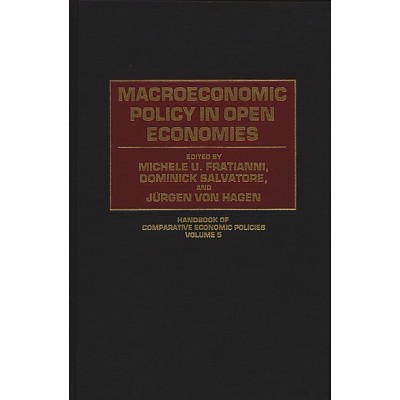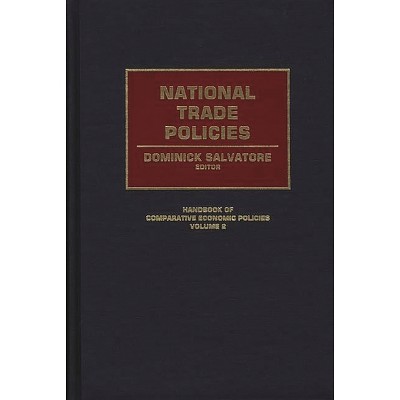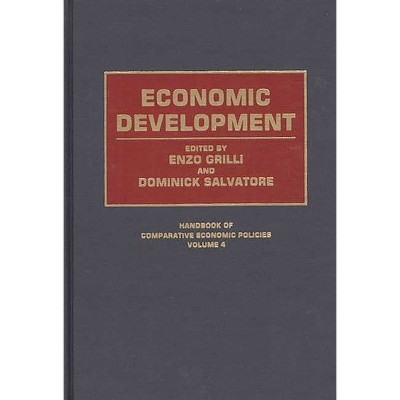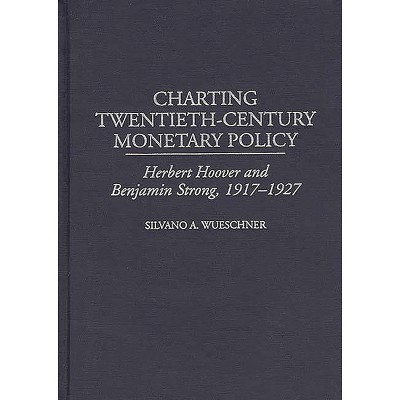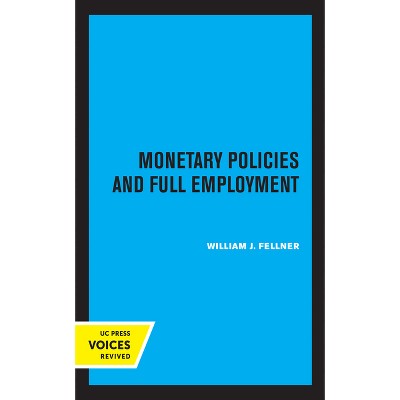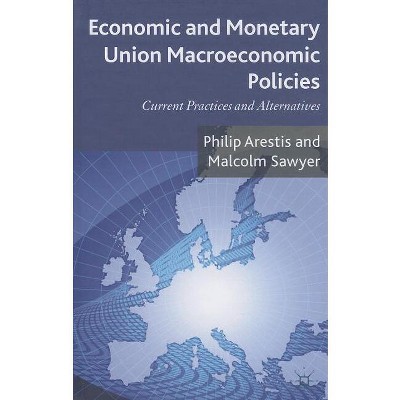Sponsored

Monetary Policy in Developed Economies - (Handbook of Comparative Economic Policies) by Michelle Fratianni (Hardcover)
In Stock
Sponsored
About this item
Highlights
- The third volume in Greenwood's Handbook of Comparative Economic Policies, this volume provides an overview and comparison of monetary policies in the United States and the world's leading industrial, or G-7, countries.
- About the Author: MICHELE U. FRATIANNI is Professor of Business Economics and Public Policy at the Graduate School of Business of Indiana University.
- 608 Pages
- Business + Money Management, Money & Monetary Policy
- Series Name: Handbook of Comparative Economic Policies
Description
About the Book
The third volume in Greenwood's Handbook of Comparative Economic Policies, this volume provides an overview and comparison of monetary policies in the United States and the world's leading industrial, or G-7, countries. Although monetary policy is one of the most powerful and frequently used means of combating inflation and unemployment and of promoting long-term economic growth, there are many unresolved questions pertaining to the theory and practice of monetary policy. Moreover, in a world becoming increasingly interdependent, monetary policies in each industrial country have significant repercussions in other countries. This handbook is the only in-depth, up-to-date book providing an exhaustive comparative overview of the theory and practice of monetary policy in developed economies.
Following an introduction written by the editors, the volume is divided into three parts. Part I, encompassing 5 chapters, covers the major issues in the theory and practice of monetary policy, including monetary policy and the money supply process, monetary policy and economic activity, monetary policy and inflation, monetary policy and regulation, and monetary policy and bank regulation. Part II, comprised of two chapters, deals with monetary policy in the United States, and part III includes chapters examining monetary policy in each of the other G-7 countries. A final chapter discusses monetary policy coordination in the European Monetary System. The chapters are written by well-known experts in the field of monetary economics. Chapter references and a selected bibliography identify the most important sources of additional information. The work concludes with a selected bibliography and an index.
Book Synopsis
The third volume in Greenwood's Handbook of Comparative Economic Policies, this volume provides an overview and comparison of monetary policies in the United States and the world's leading industrial, or G-7, countries. Although monetary policy is one of the most powerful and frequently used means of combating inflation and unemployment and of promoting long-term economic growth, there are many unresolved questions pertaining to the theory and practice of monetary policy. Moreover, in a world becoming increasingly interdependent, monetary policies in each industrial country have significant repercussions in other countries. This handbook is the only in-depth, up-to-date book providing an exhaustive comparative overview of the theory and practice of monetary policy in developed economies.
Following an introduction written by the editors, the volume is divided into three parts. Part I, encompassing 5 chapters, covers the major issues in the theory and practice of monetary policy, including monetary policy and the money supply process, monetary policy and economic activity, monetary policy and inflation, monetary policy and regulation, and monetary policy and bank regulation. Part II, comprised of two chapters, deals with monetary policy in the United States, and part III includes chapters examining monetary policy in each of the other G-7 countries. A final chapter discusses monetary policy coordination in the European Monetary System. The chapters are written by well-known experts in the field of monetary economics. Chapter references and a selected bibliography identify the most important sources of additional information. The work concludes with a selected bibliography and an index.Review Quotes
?This book is a valuable resource to individuals interested in monetary policy in theory and practice. Moreover, the institutional details concerning the G7 countries provides a unique contribution. The collection of the information into one source volume provides a valuable service to the profession. I recommend this volume as a good reference for serious students of monetary theory and monetary policy.?-Eastern Economic Journal
?This volume provides the most comprehensive comparative analysis of monetary policy in the G-7 countries.?-Choice
"This volume provides the most comprehensive comparative analysis of monetary policy in the G-7 countries."-Choice
"This book is a valuable resource to individuals interested in monetary policy in theory and practice. Moreover, the institutional details concerning the G7 countries provides a unique contribution. The collection of the information into one source volume provides a valuable service to the profession. I recommend this volume as a good reference for serious students of monetary theory and monetary policy."-Eastern Economic Journal
About the Author
MICHELE U. FRATIANNI is Professor of Business Economics and Public Policy at the Graduate School of Business of Indiana University. He has also taught at the Catholic University of Louvain, the Universita Cattolica of Milan, and the Universita Sapienza of Rome. The author of 13 books and approximately 100 articles, his recent books include Money, Output and Exchange Rates: The European Experience (1985), La Storia Monetaria D'Italia, 1860-1980 (1991), and European Monetary System and European Monetary Unification (1992). Fratianni is the Managing Editor of Open Economies Review and a member of the review board of several economic journals.
DOMINICK SALVATORE is the Director of the Graduate Program and Professor of Economics at Fordham University. He has written and edited 28 books, including International Economics (3rd ed., 1990), Microeconomics (1991), and Population Growth and Economic Development (Greenwood, 1988). He is the editor of the first two volumes in the Handbook of Comparative Economic Policies: National Economic Policies (1991) and National Trade Policies (1992). Salvatore has published over 50 articles in the leading economics journals and presented his research at numerous universities in the United States and abroad. He was elected a director of the International Trade and Finance Association and is the co-editor of The Journal of Policy Modeling and Open Economies Review and is Associate Editor of the American Economist.





